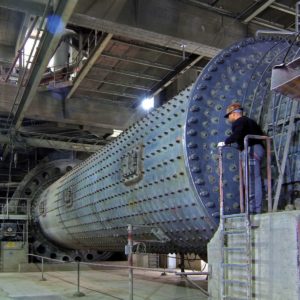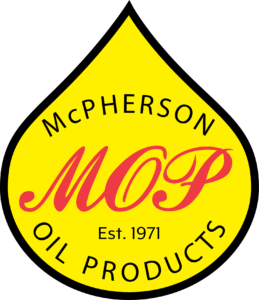Enhancing cement plant productivity with high performance lubricants
21 Aug 2020, Posted by in Industry InformationHigh and heavy loads, extreme temperatures, and multi-step processes all make for challenging operating conditions in cement production. It can be especially severe for the processing equipment such as the kilns, ball mills, conveyors, and quarry-side mobile plants that are functioning round the clock. As a result, the components in these machines, including the bearings and gearboxes, can also be subject to overheating and premature wear.
Therefore, plant operators must maintain the reliability of their machinery to prevent any unscheduled downtime and costly additional maintenance, as well as safeguard their bottom line performance.
One way to do so is to invest in high-performance oils and greases that are able to deliver a variety of cost-effective operational benefits – such as enhancing equipment cleanliness and protection, reducing unscheduled maintenance, as well as boosting overall performance.
The right advanced synthetic oils and greases can offer a number of benefits over conventional mineral-based alternatives, especially under severe conditions. Refer to the sidebar to find out how one company in China solved its overheating issues with its hammer crusher, and another in India resolve gearbox issues in its stacker reclaimer.
Address lubrication in ball mills and kilns
Lubrication in ball mills and kilns is another common issue in cement plants. Due to their continuous operation and working conditions, their open gears usually suffer from issues related to under-lubrication, such as pitting, which can result in overheating and increased vibrations.
The use of a grease formulated with extreme pressure additives and excellent adhesion to resist ‘fling-off’ can alleviate the worst of these effects. It may also be appropriate to apply an ultra-high viscosity oil with an additive package designed to offer appropriate levels of thermal and oxidative protection.
For instance, a processing plant in Minnesota switched from  conventional mineral oil to a high-performance oil, which helped reduce the energy consumption of its rod and ball mill gearboxes by 1%. This led to savings of $8,800 on a single gearbox over the course of a year. The oil’s extended operating life also provided an annual cost reduction of $2,125. The total saving across the plant’s six mill gearboxes exceeded $70,000*!
conventional mineral oil to a high-performance oil, which helped reduce the energy consumption of its rod and ball mill gearboxes by 1%. This led to savings of $8,800 on a single gearbox over the course of a year. The oil’s extended operating life also provided an annual cost reduction of $2,125. The total saving across the plant’s six mill gearboxes exceeded $70,000*!
Always keep a close eye
Selecting the right lubricants is only the first step. It is also vital to monitor its in-service performance. The most effective way to do this is to employ a used oil analysis service, which is a key part of any full-featured maintenance program.
Used oil analysis is best described as a blood test for machinery, providing insights into the condition and performance of the lubricants being used. This information can help cement plant operators detect potential problems such as contamination, deposit build-up, and wear, ultimately helping to improve equipment reliability.
Substantial $$ benefits
Despite only accounting for around 1% of a cement mill’s operational expenses, high-performance oils and greases have the potential to deliver significant cost benefits. Improvements in lubricant technology have seen significant breakthroughs in extending equipment life and lengthening oil drain intervals.
As such, we always advise plant operators to talk with their lubricant suppliers and ensure they choose the oils and greases that best fit their operational needs.
If you have any questions on lubrication in cement mills, please do leave a comment below. Otherwise, hit “Like” on the toolbar to the right if you found this article useful!
ExxonMobil Success Stories
- China’s Dalian Cement Group was experiencing frequent overheating issues with its hammer crusher, which resulted in multiple premature bearing failures. After an on-site investigation, ExxonMobil engineers recommended the company replace its conventional lubricant with the Mobilith SHC™ 100 synthetic grease. Formulated for extreme environments, the high-performance lubricant resists viscosity thinning and oxidation, even at elevated temperatures.
After transitioning to Mobilith SHC 100, the bearings in the hammer crusher no longer experienced overheating problems, which significantly reduced the level of failures and related unscheduled downtime. This resulted in an annual saving of $153,000 and enhanced safety by reducing employee-equipment interaction*.
- India’s Dalmia Cement was experiencing gearbox issues in its stacker reclaimer, which saw shear thinning of the gear oil due to elevated temperatures and loads. As a result, the lubricant needed to be changed out every 8,000 hours. In an effort to extend oil drain intervals, Dalia Cement switched to Mobil SHC™ 632 synthetic gear oil. The ISO 320 viscosity grade is formulated with proprietary performance additives and synthetic base oils, which provide a much higher viscosity index and lower traction coefficient than conventional oils. In operation, it resists high-temperature oxidation and shear thinning to provide superior oil film thickness under loads and longer oil drain intervals.
After switching to Mobil SHC 632, the company’s plant energy meter recorded a 5.67% increase in energy efficiency. It also observed a 20°C reduction in the reclaimer gearbox operating temperature. As a result, oil drain intervals were extended by four times, generating a significant cut in lubricant consumption. Altogether, Dalmia Cement saw cost savings of around $1,790*.
*This proof of performance is based on the experience of a single customer. Actual results can vary depending upon the type of equipment used and its maintenance, operating conditions and environment, and any prior lubricant used.
Source: Daena Tan with ExxonMobil
